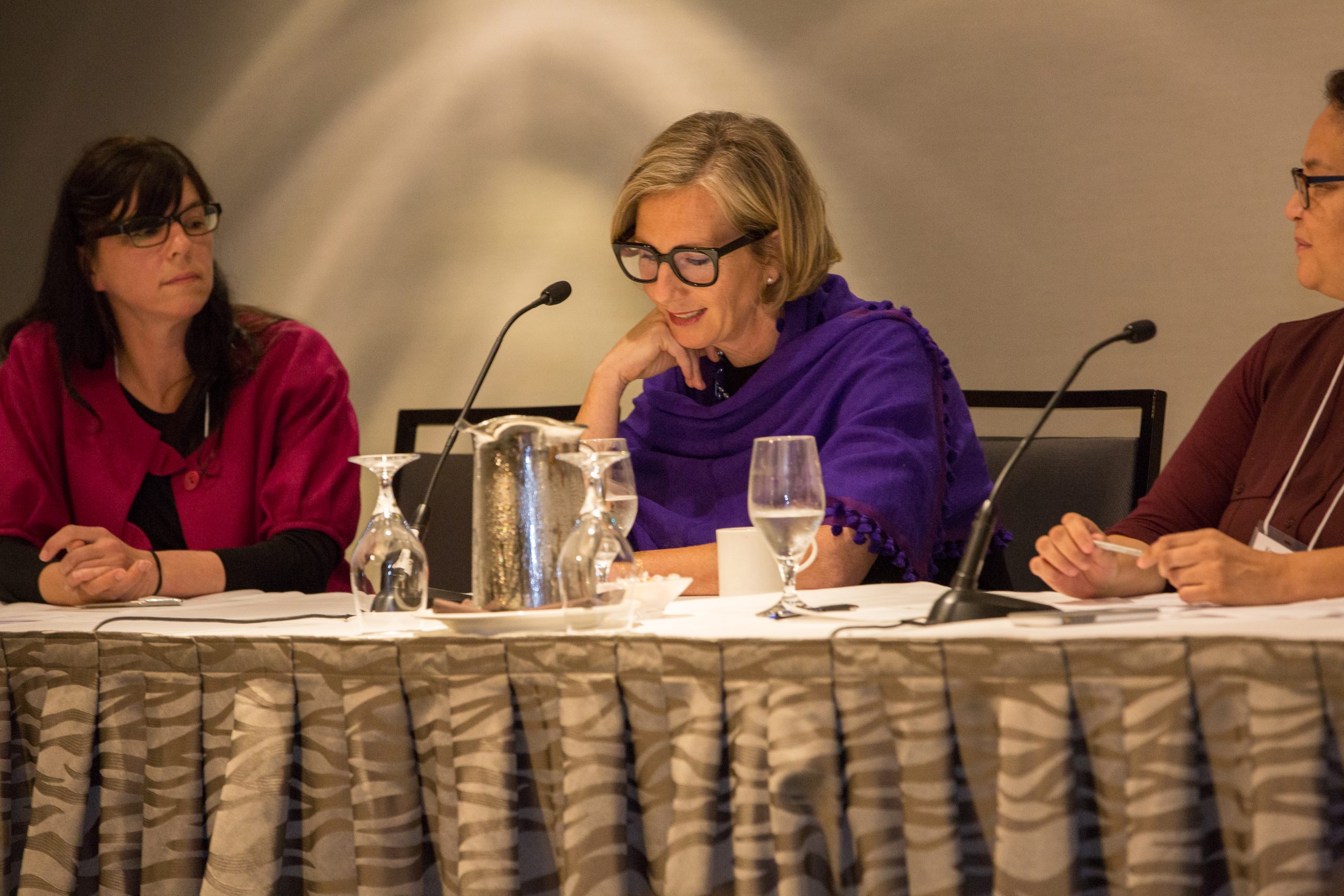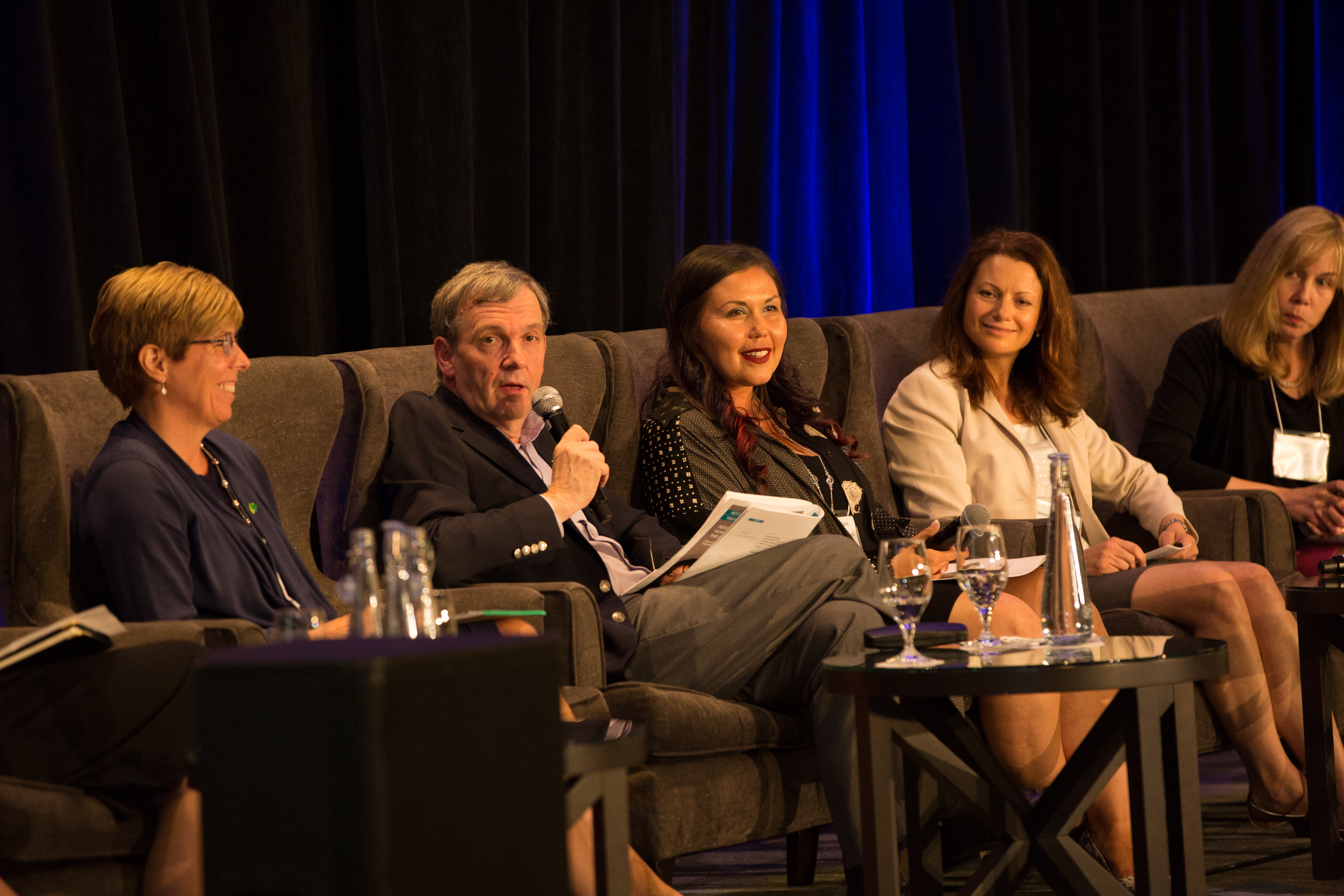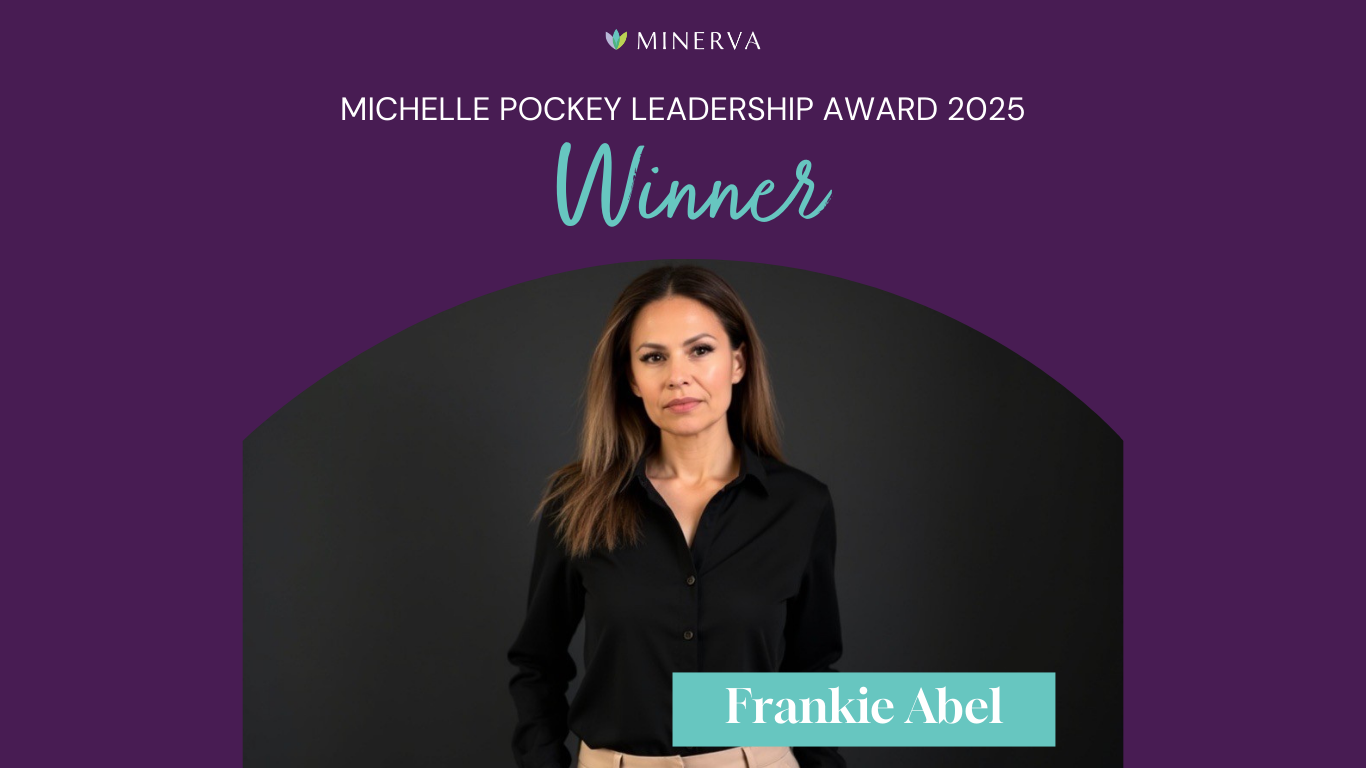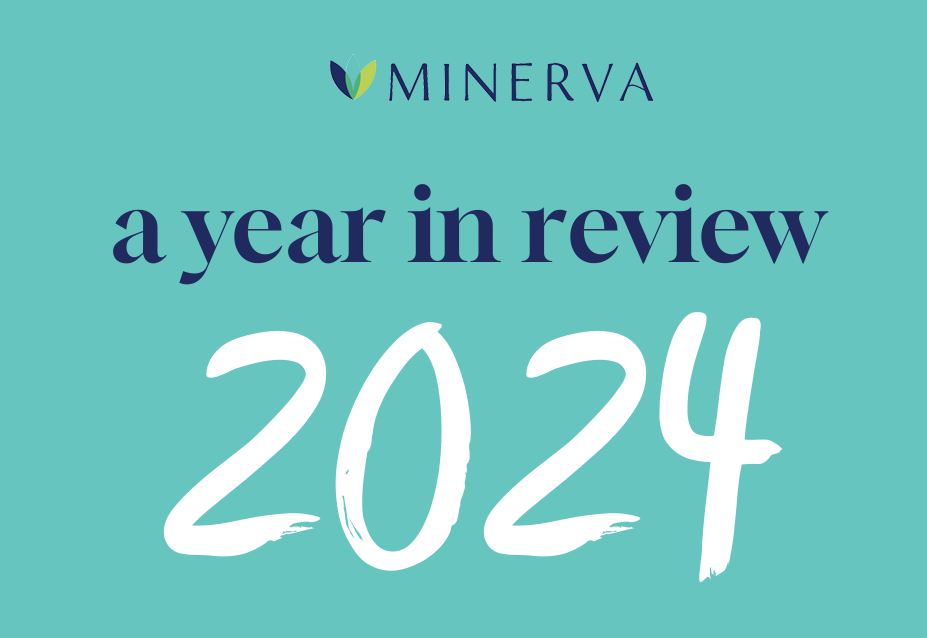On Wednesday, June 22nd, Minerva hosted 250 business leaders at the Fairmont Waterfront Hotel, with the goal of collectively ‘outsmarting our blind spots’. We learned that identifying and managing our implicit biases is no small feat – one that requires constant monitoring and attention.
The day began with a traditional welcome by peace-builder Chief Dr Robert Joseph. Our MC, Maggie Langrick, then told her story of self-discovery through Minerva’s Women Leading the Way™ program (a theme that would be repeated later in the day, with Reconciliation Canada’s CEO, Karen Joseph). Mo Ladak of Vancity released our 2016 Face of Leadership™ Score Card, which measures women in leadership in the 50 top-grossing companies in BC. He managed to find a good news story amongst the disappointing results – that all of us were gathered together, committed to accelerating change.
Fiona MacFarlane, Managing Partner of Ernst & Young (BC), moderated a candid panel of four CEOs: Jan Grude of Pacific Blue Cross, Ravi Saligram of Ritchie Bros, Jim Lightbody of BCLC, and Mark Blucher of ICBC. All four leaders are signatories of Minerva’s Face of Leadership™ Pledge, and spoke about how this commitment has transformed the way they personally guide their corporate cultures. Jan Grude, for example, commented that since participating in Minerva’s peer-learning circles (for pledge signatories) he now notices when it’s only men answering his questions – and he makes a point of addressing it, for all to hear.
These are the ways the shift will happen – by taking personal responsibility, and being conscious where once we were unconscious. That was the message delivered by Dr Carlee Beth Hawkins, a professor of psychology at the University of Illinois Springfield, and part of Project Implicit, the research team responsible for the best-selling book ‘Blind Spot’. Over the course of her keynote address, she took the audience through a series of exercises that made apparent our own levels of bias – not only towards others, but towards ourselves as well. Of course our own opinions are objective; of course women are less biased than men, when it comes to assumptions around career and family, right? The truth is irrefutably the opposite – news she delivered with such tact and humour that the room was full of gasps and laughter throughout her presentation.
We then shifted to our first breakout session of the day, during which two panels explored unconscious bias at the board and executive levels. Minerva board members Russ Cook and Bob Elton were amongst the speakers, as was Kory Wilson of our Combining Our Strength™ Council, and Jill Leversage of our Patrons Circle. The idea of changing process emerged from both discussions – changing how we conduct meetings, how we ask questions, the matrix of skills we invite to the table. Most importantly, how we create change by working with what and who we already have – by facilitating differently, and welcoming contributions.
Over lunch, we cracked into research done by McKinsey and Company on diversity and inclusion as a business driver. The keynote was delivered by Marie-Claude Nadeau, Principal of McKinsey’s San Francisco office, and passionate co-leader of the firm’s research on women in the workplace. It has become increasingly clear that companies with more diverse workforces perform better financially. So how is it that women are still underrepresented at every level of today’s corporations?
The solution, it seems, is a culture shift – both within organizations, and without. Or so we learned from the afternoon’s first breakout panelists, who presented transferrable lessons for creating diverse and inclusive cultures. Speakers included Jason Bower of KPMG and John Allen of Vancity, as well as Wedlidi Speck of the Ministry of Children and Family Development, and Laurie Sterritt of BC Hydro (also Minerva’s newest board director). Each panel throughout the day included Aboriginal leaders, ensuring that inclusion was on the table – and at the table – as Minerva’s first and most important value.
The final breakout was dedicated to radical leadership, and included two panels of trailblazers and disruptors. Reconciliation Canada’s CEO, Karen Joseph, spoke alongside the City of Vancouver’s Deputy Mayor, Andrea Reimer, and SheEO Founder, Vicki Saunders. Each contributed their story of taking a giant step in leadership. Meanwhile, Indigenomics, Digital Humanities, and the sheer buying – and economy-steering – power of women, were topics covered during another stellar session, across the hall.
Finally, the breakout moderators gathered for a closing conversation in the ballroom, which included Wendy Cox of the Globe and Mail, and Jill Earthy of FrontFundr. Minerva’s board directors, Chastity Davis and Bob Elton, facilitated a conversation which included reconciliation, and, ultimately, safety for Aboriginal women. One participant reflected that she had never really thought about reconciliation on a personal level, and that, as a result of this day of learning, she would now raise her sons differently.
It was a day of transformation for everyone we spoke with – one which included brave new ideas and critical paths forward. Many attendees seemed to not want to leave, as the reflection continued well past cocktail hour at our networking reception. We heard from several groups that they were going back to work the next day to share the Project Implicit test for biases with their entire teams. Team Minerva received countless kudos for our own trailblazing and vision, in convening and continuing this conversation.
We left on a high, committed to redoubling our efforts to change the face of leadership in BC.




